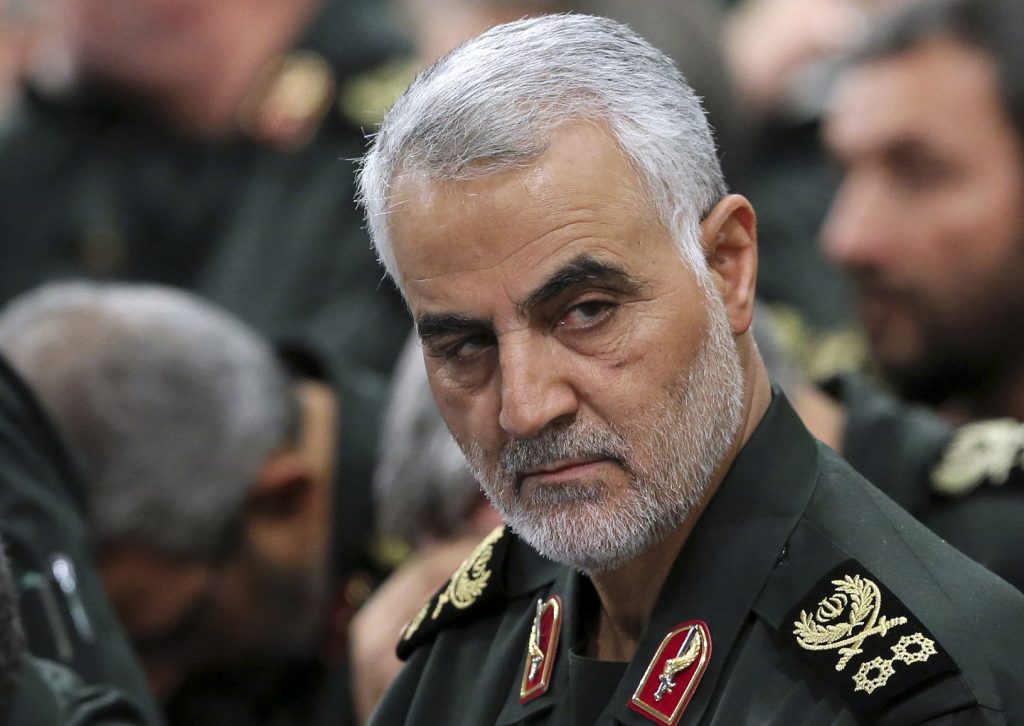Civil War in Iraq? Quite Possibly. World War III? Forget About it.
6 min read
By Niall Ferguson
My response to the news that US forces had assassinated Iran’s paramilitary foreign intelligence chief Major General Qassim Soleimani on Thursday was, “Good riddance. Now what?”
No tears should be shed for Soleimani. As the mastermind of Iran’s multiple proxy wars beyond the Islamic Republic’s borders, he had the blood of countless people on his hands, including hundreds of American soldiers killed in Iraq and Syria by the Shia militias he helped to train and finance. Second only to the Supreme Leader Ayatollah Ali Khamenei in terms of his personal power, Soleimani had come to personify the ruthless, bloodthirsty spirit of the regime in Tehran.
But what will the consequences be of his assassination? Let us begin by dismissing that hardy perennial, “Oh no! Reckless Trump has lit the fuse for World War III.” At a time like this, commentators in need of a facile historical analogy inevitably reach for the murder of the Austrian Archduke Franz Ferdinand in Sarajevo in June 1914, generally regarded as the catalyst for World War I.Get This Week in Opinion in your inboxGlobe Opinion’s must-reads, delivered to you every Sunday.Sign Up
But Soleimani was no Franz Ferdinand. First, it was Bosnian Serb terrorists backed by Serbian military intelligence who carried out the hit on the legitimate heir to the august Austro-Hungarian imperial throne. Soleimani’s career as a sponsor of terrorism puts him closer to the Sarajevo assassin, Gavrilo Princip, than to his victim.
Second, the Middle East in January 2020 is not Europe in June 1914. The great powers then were quite evenly matched; each made the mistake of thinking that it might gain from a full-scale European war. Today, Iran’s leaders are under no illusions. They cannot risk a war with the vastly superior United States, which numbers among its allies both the richest state in the region (Saudi Arabia) and the most technologically advanced (Israel).
A better analogy might be with the assassination of Reinhard Heydrich, “the man with the iron heart” (Hitler’s grim accolade), the founding head of the Nazi Sicherheitsdienst (security service), the creator of the genocidal Einsatzgruppen, and the brutal tyrant of the dismembered Czechoslovakia, who was fatally wounded by British-trained agents of the Czech government in exile in May 1942.
The British government’s decision to train and send Heydrich’s killers was made in the full knowledge that there would be harsh reprisals. There were. In the (erroneous) belief that the assassins were connected to the towns of Lidice and Ležáky, Hitler ordered the execution of all their male inhabitants over 16 as well as all the women of Ležáky. In all, 1,300 Czechs perished in this orgy of vengeance.
Churchill, who was fond of the kind of “dirty war” waged by the Special Operations Executive, favored further retaliation, pledging to the Czechs that the Royal Air Force would wipe out three German villages. Only with difficulty did the other members of the War Cabinet dissuade him.RELATED: As tensions with Iran escalated, Trump opted for an extreme measure
In much the same way, President Trump and his advisers knew when they took the decision to drop a bomb on Soleimani that there would be reprisals. There will be. On Friday, Ayatollah Khameini tweeted the hashtag #SevereRevenge. Stand by for attacks by Iranian forces and their Shia proxies on US personnel, as well as against US allies, all over the Middle East. The question is: will the benefits of executing Soleimani outweigh those costs, which will bring agony to who knows how many families?
Benjamin Disraeli, England’s first Jewish prime minister, famously observed, in response to President Abraham Lincoln’s murder, that “assassination has never changed the history of the world.” He was wrong. As Benjamin Jones and Benjamin Olken show in my favorite economics paper on this subject — which covers all 298 assassination attempts on national leaders from 1875 to 2004 — successful assassinations tend to increase the intensity of small-scale conflicts. However, when an autocrat is killed, the probability of a transition to democracy rises.
The downside of killing Soleimani is that Iraq will now blow up. Whereas Czechoslovakia had been partitioned and subordinated to Nazi rule, Iraq today is in a kind of limbo. Freed from Saddam Hussein’s tyranny by the 2003 US invasion, it is a democracy with only limited US security support. However, Iranian penetration of Shia militias and political parties means that it is dangerously close to becoming a vassal of Tehran. Significantly, the Iraqi prime minister, Adil Abdul-Mahdi, has condemned the US strike against Soleimani. The danger is a return to civil war.
This assassination does nothing to solve the problem that was created by Trump’s predecessor, Barack Obama, when he decided to liquidate the US presence in Iraq in excessive haste, squandering all that had been achieved in the “surge” that ended the last Iraqi civil war.
The upside of killing Soleimani is that the Iran regime’s bluff has been called and its vulnerability exposed for everyone in the region to see.
RELATED: Opinion | Matthew Bunn: We’re in for a rough ride with Iran
Iran is in dire economic straits, largely thanks to US sanctions, which the Trump administration tightened last year. Oil production is down by close to half since April 2018. The International Monetary Fund estimates that the Iranian economy shrank by 9.5 percent in 2019. The Statistical Center for Iran puts the inflation rate at 47.2 percent.
A 200 percent fuel price hike on Nov. 15 triggered mass protests in two-thirds of Iran’s provinces. Approximately 1,000 protesters and 200 security personnel were killed. The regime was forced to shut down the Internet twice to maintain control.
The country’s beleaguered rulers gambled that they could force the United States to relax sanctions by exerting force, in the belief that Trump would not risk war in an election year. Wrong.
The United States may now face pandemonium in Iraq, but Iran will not necessarily be the beneficiary. There is a good deal of anti-Iranian sentiment in the country; indeed, there have been numerous anti-Iranian protests since October, and many Iraqis celebrated Soleimani’s death last week.
It is in the wider regional struggle for mastery, however, that Iran is most obviously at a disadvantage.
In July last year, Israel struck Iranian targets in Iraq, where Iran is believed to have stockpiled missiles. In September it was the turn of Hezbollah, Iran’s clients in Lebanon. The Israelis have also been hitting Iran’s forces in Syria. On Dec. 18, Israeli Defense Minister Naftali Bennett threatened to turn Syria into “Iran’s Vietnam.”
Aside from Qatar, the Arab states are uniformly hostile to Tehran. Not only are the Saudis still smarting from Iran’s attack on their oil facilities in September; they also bitterly resent Iranian support for the Houthi rebels in Yemen.
Meanwhile, the Europeans are finding it harder to keep the 2015 Joint Comprehensive Plan of Action alive, as Iranian violations grow ever more flagrant.
As for the other major players in the region — Russia and Turkey — they are increasingly antagonistic toward Iran. With the Syrian civil war all but over, Moscow is intent on squeezing out the Iranians.
Civil war in Iraq? Quite possibly. World War III? Forget about it. The unanswered question is what, if anything, can be done to reverse the biggest trend of the past decade, which has been for Russia — not Iran — to take over from the United States as the Middle East’s powerbroker. The assassination of Qassem Soleimani changes many things. It doesn’t change that.
Niall Ferguson is the Milbank Family Senior Fellow at the Hoover Institution at Stanford University.





